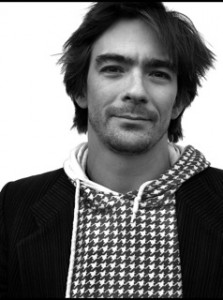
Imanuel Schipper is head of the Swiss National Science Foundation (SNSF) funded research project „Re/Occupation. Designing Public Spheres in Urban Space by Theatrical Interventions“. Between sepetember 2009 and november 2010 he was head of the also by the SNSF funded research project „Longing for Authenticity. A Critical Analysis of the Term an the Actual Practice in the Context of Contemporary Staging.“ He already dealt with strategies of construction and staging for several years. Many times, he worked as a dramaturgist for the theatre collective Rimini Protokoll and developed together with the collective a contemporary way of documentary theatre.
Imanuel Schipper works on the interface between scientific research, teaching, and artistic practice. He analyses the terms „theatricality“, „performativity“, „dramaturgy“, „staging“, „reception“ and „mediality“ – coming from the theatre studies – beyond the boundaries of the theatre, for example in design, urban design, scenography and curation.
He participated several times as curator and dramaturgist in theatrical/performative interventions in public spaces, amongst others Re-Location: Sanatorium am Schiffbau Zürich (together with Matthias von Hartz), City of Abstracts (William Forsythe) or Hot Spots – ímoun ethó in Athens with Rimini Protokoll.
„I search theatrical structures outside the theatre, but also look for solutions to transform practical and theoretical theatre knowledge in non-theatrical areas.“
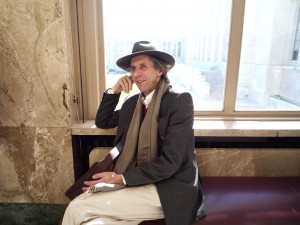
Clemens Bellut studied Philosophy, Philology and Ethnology in Bonn and Tübingen. Teaching at the University Tübingen, the Hölderlin- House Tübingen, the Evangelische Stift in Tübingen, the Merz- Akademie in Stuttgart, the FU Berlin, the Technical University Ilmenau and the Zurich University of the Arts (ZHdK). From 1993 to 1997 consultant of the chairmans of the airport corporation Frankfurt (FRAport); since 2006 – together with Ruedi Baur and Stefanie-Vera Kockot – head of the institut Design2context of the ZHdK.
His main research is centered around the concepts of identity and representation in the field of philosophical theory and design theory and deals with questions of „civisme“.
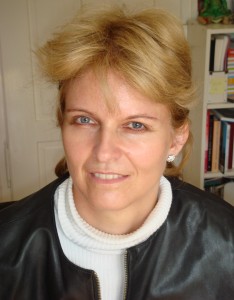
Gabriela Muri is an architect and a cultural scientist and works as senior lecturer at the chair for sociology at the architecture departement of the ETH Zurich. In her PhD Pause! Zeitordnung und Auszeiten aus alltagskultureller Sicht and in her interdisciplinary research projects, she focuses on the fundamental preconditions of the production and representation of space and time in urban contexts (urban design, public space, spatial design, cultur of time – modern course of the year), but also on the daily life of different groups of society (event culture, youth culture, intergenerationality, techno scene, happiness of daily life). In her habilitation Raum-, Zeit- und Bildrepräsentationen urbaner Öffentlichkeiten, she deals with the spatiotemporal conception of the situationality in urban contexts. Explicitly, she integrates theoretical questions concerning culture and city, which are closely connected with conditions of production and aesthetical characteristics of contemporary event culture and scene cultures. Opposed to staging and typing of public sphere as stage- or consumption cultur, are situative relevant and everyday practices of appropriation of agents – here are links for an examination of theatrical interventions in everyday urban spaces.
In the context of her habilitationgrant of the University of Zurich, Gabriela Muri was Research Fellow at the EHESS, Centre d’étude des mouvements sociaux in Paris, and at the Università di Milano Bicocca; 2010, she taught as a visiting professor a the Institut d’Urbanisme in Grenoble (Université Pierre Mendès).
Due to her longtime research and teaching activity at the Institute for Popular Cultures at the University Zurich and at the chair for sociology at the architecture departement of the ETH Zurich, she is to locate in all the different disciplines, which deal with central questions of contemporary urban design and appropriation of public urban spaces.
In several research- and exhibition projects, she worked with collegues of Zurich’s University of the Arts and she has experienced the exchange of their contexts of theory and their practical relevance as very productive.
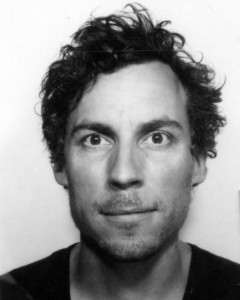
Tim Rieniets is an architect, researcher and curator and works as senior lecturer at the chair for architecture and urban design at the ETH Zurich. Public space takes on a central position in his scientific, didactic and curatorial activities: As co-curator of the 4th International Architecture Biennale Rotterdam 2009 “Open City: Designing Coexistence”, Tim Rieniets dealt intensively with questions of accessibility and participation in urban spaces. In cooperation with internationals experts, phenomena of spatial segregation were analyzed and solutions for urban design were developed. Also the exhibition design of the Biennale at the Netherlands Architecture Institute (by MAXWAN Architects + Urbanists) followed the idea to generate a space for the public, stimulating encounters between visitors and encouraging their active participation. For this purpose, architecture, displayed pieces, commercial offers and events were melted into a „space of possibilities“. The results of the exhibition were published in the publication „Open City: Designing Coexistence“ (Rieniets et al 2009).
Tim Rieniets is initiator and coordinator of the Urban Research Studio at the chair for architecture and urban design (ETH Zurich), where he investigated the production and use of public spaces by means of empirical research. Involving architecture students, different aspects of publicness and public space were examined, e.g.: time and rhythm of the use of public space; formal and informal media (placards, signs, graffiti); waste as indicator for mental value of public space; contingent encounters in public space; security and surveillance a.s.o.
As lecturer and co-organizer of the interdisciplinary workshop „Fancity 2008“, Tim Rieniets contributed to the critical analysis of public space in Zurich, one of the host cities of the UEFA European Football Championship 2008. Furthermore, he curated the interdisciplinary exhibition „Langstrasse verlängern!“ at the Architekturforum Zürich, which dealt with tendencies of gentrification and commercialization of public space.
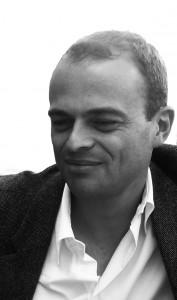
Dr. Stephan Trüby (b. 1970) is an architect, theoretician, curator and director of the post-graduate programme “Spatial Design” at Zurich’s University of the Arts. He studied architecture at the AA School, London. From 2007-2009 he was Professor of Architecture at Karlsruhe’s University of Arts and Design (HfG). Amongst his most important publications arearchitektur_theorie.doc: Essays since 1960 (with Gerd de Bruyn, Birkhäuser, 2003), 5 Codes: Architecture, Paranoia and Risk in Times of Terror (ed. by Igmade, Birkhäuser, 2006), Exit-Architecture: Design between War and Peace (Springer, 2008), The World of Madelon Vriesendorp (with Shumon Basar, AA Publications, 2008) andHertzianism: Electromagnetism in Architecture, Design and Art (Fink, 2009). He is an Editorial Consultant of ARCH+ . His research focuses on history and theory of scenography, interlacing of “scenography and architecture” and “theater/performance and architecture”. In “Exit-Architecture” Trüby examined concepts of “function”, “event” and temporariness” in existing architectures. In “Re/Occupation”, he will develop this topic further.
Johanna Dangel studied literature and history in Freiburg im Breisgau and Paris. During and after her studies dramaturgical assistences (Theaterhaus Gessneralle, Theater Freiburg, Vorarlberger Landestheater Bregenz).
Since 2009, she works as a scientific researcher at the Zuricher university of the Arts: -„Longing for authenticity. A critical research of concept and practice in contemporary theater“ -„Re/Occupation. Designing Public Spheres in Urban Space by Theatrical Interventions“.
She writes on her dissertation „The mediatised Death. The recipient’s search for authentic death-experience in (re-)presentations“ and works as free dramturgist for the dance Company urbanReflects (Parcival XX-XI, a cooperation with the TZI of the University of Bremen, 2010).
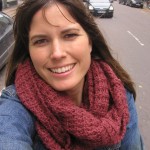 Cecilie Sachs Olsen studied urban studies at the international and interdisciplinary programme 4Cities at the universities of Brussels, Vienna, Copenhagen and Madrid, and theatre and performance studies at the University of Copenhagen. During her studies, Cecilie Sachs Olsen has dealt with art, culture and urbanity in all forms. She has worked at the largest Nordic festival of art in public space, Metropolis in Copenhagen; she is co-founder of the Danish theatre group, Black Box Pangea; and is initiator and coordinator of the project zURBS (www.zurbs.org) -a social-artistic urban laboratory for Zurich, which aims at re-thinking urban realities through a social-artistic performative approach. Her particular research interest is in the integral use of art in urban development, and especially the potential of arts festivals to provide new and alternative perspectives on the development of cities. She actively writes and publishes articles and does presentations/workshops on this and related topics.
Cecilie Sachs Olsen studied urban studies at the international and interdisciplinary programme 4Cities at the universities of Brussels, Vienna, Copenhagen and Madrid, and theatre and performance studies at the University of Copenhagen. During her studies, Cecilie Sachs Olsen has dealt with art, culture and urbanity in all forms. She has worked at the largest Nordic festival of art in public space, Metropolis in Copenhagen; she is co-founder of the Danish theatre group, Black Box Pangea; and is initiator and coordinator of the project zURBS (www.zurbs.org) -a social-artistic urban laboratory for Zurich, which aims at re-thinking urban realities through a social-artistic performative approach. Her particular research interest is in the integral use of art in urban development, and especially the potential of arts festivals to provide new and alternative perspectives on the development of cities. She actively writes and publishes articles and does presentations/workshops on this and related topics.

